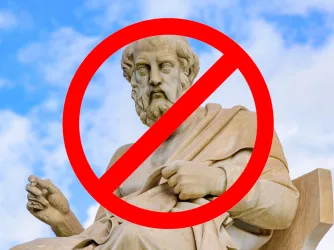Table of Contents
Lawsuit challenges Department of Education’s rescission of 2011 ‘Dear Colleague’ letter

Last Thursday, Equal Means Equal, “a national non-profit organization that advocates for sex/gender equality and fully equal rights for women,” and three anonymous individual plaintiffs filed a federal lawsuit challenging the Department of Education’s rescission of the April 4, 2011, “Dear Colleague” letter and accompanying 2014 guidance on September 22 of this year. The suit alleges that ED violated the Administrative Procedure Act, the U.S. Constitution, Title IX of the Education Amendments of 1972, the Massachusetts Equal Rights Act, and the Massachusetts Constitution.
ED’s most recent documents on sexual misconduct include a new “Dear Colleague” letter and a “Q&A on Campus Sexual Misconduct.” They essentially announce a return to how ED’s Office for Civil Rights enforced Title IX before April 2011, allowing (but not requiring) institutions governed by Title IX to provide previously forbidden or discouraged procedural safeguards for students accused of sexual misconduct, such as a heightened standard of proof. FIRE sponsored a lawsuit filed in June 2016 arguing that the 2011 letter’s mandate that schools use the “preponderance of the evidence” standard in sexual misconduct cases was unlawful under the APA.
Secretary of Education Betsy DeVos has also promised notice-and-comment procedures, through which all interested parties can participate, before more permanent rules are promulgated.
Many of the arguments in Equal Means Equal’s lawsuit against ED and DeVos are worth refuting, but a few are especially disingenuous and troubling.
Sexual misconduct cases versus non-sexual misconduct cases
Plaintiffs argue that ED’s September documents — “the DeVos rules” — are unlawful because they instruct institutions to treat sexual misconduct cases differently from other disciplinary matters. This is plainly not accurate. September ED documents focus on sexual misconduct cases because they are undoing the previous administration’s mandate that institutions treat those cases differently from other cases, including cases implicating other civil rights laws besides Title IX. The Q&A explicitly states that institutions should not treat sexual misconduct cases differently, stating: “When a school applies special procedures in sexual misconduct cases, it suggests a discriminatory purpose and should be avoided.”
As support for its claim, the complaint notes that the September documents “permit the application of a more onerous ‘clear and convincing evidence’ standard of proof,” rather than mandating the preponderance standard. It says: “The DeVos rules do not permit schools to apply a burden of proof more onerous than preponderance to determine whether civil rights harms occurred on the basis of other protected class categories . . . .” The September documents don’t explicitly allow a heightened standard of proof in non-sexual misconduct cases because a heightened standard of proof has always been permitted in non-sexual misconduct cases. The 2011 Dear Colleague letter singled out sexual-misconduct cases for special treatment, and with its rescission, ED has simply brought rules for sex cases back in line with all other cases. Institutions are now free to choose what standard they want to use for all cases (mostly — some schools, like Stanford University, used standards even higher than clear and convincing evidence before 2011), but, as noted above, the standard should be the same for all cases at each institution.
If plaintiffs were truly concerned about sexual misconduct cases being treated differently, they would have voiced these objections when the 2011 letter was released, or in the following years when the executive branch published scores of pages of additional directives and recommendations pertaining only to sexual misconduct cases. It was those documents, not the letter and Q&A released last month, that set forth different standards for sexual misconduct cases than for other types of cases.
The Administrative Procedure Act
Relatedly, the complaint argues that ED’s September documents violate several provisions of the Administrative Procedure Act. Among other things, they allegedly “were issued without observance of procedure required by law” — in other words, there was no notice-and-comment period.
This was one of FIRE’s complaints about the 2011 preponderance mandate. ED’s defense, time and time again, was that the Dear Colleague letter wasn’t binding. As an interpretative rule, ED’s logic went, it didn’t need to go through notice and comment to be promulgated. But that also meant notice and comment wouldn’t be required to rescind it. After six and a half years of ED and advocates for the 2011 Dear Colleague letter arguing that the letter did not constitute a violation of the APA because it was mere “interpretative guidance,” those same advocates are now turning around and arguing that it was something more.
ED’s September documents only rescind directives that were either unlawful to begin with or lawfully rescindable without procedure, by OCR’s own public statements. They do not create new obligations for institutions governed by Title IX. Institutions were not mandated to change their policies, unlike in the 2011 letter. The September documents reflect a change in how OCR will enforce Title IX — a change to which the Obama administration willfully opened the door by refusing to put the 2011 letter through notice-and-comment procedures.
The First Amendment
Bafflingly, the complaint further asserts: “Plaintiffs’ First Amendment rights are chilled and denied by the DeVos rules because it inhibits victims of sex-based civil rights harms from reporting and seeking redress.” Though details are lacking, the suggestion is that providing various avenues for institutions to grant their students additional procedural protections will leave complainants hesitant to report violations, and that this chill constitutes a violation of those students’ free speech rights.
“To properly assert injury in a First Amendment context,” the complaint alleges, “action need only be shown to have caused a deterrent or chilling effect on plaintiffs’ speech.” Free speech cases do enjoy relaxed standing requirements, but it’s not accurate to say they require only that speech be subjectively chilled. The government has not in any way demonstrated an intent to punish complainants for good-faith reports of harassment or assault, and the Supreme Court has explicitly stated that “[a]llegations of a subjective ‘chill’ are not an adequate substitute for [the] claim of specific present objective harm or a threat of specific future harm” normally required for a successful lawsuit.
A pledge to respect the due process rights of respondents cannot reasonably be interpreted as an unconstitutional hindrance to speech about alleged wrongdoing. If it could, surely the same First Amendment claim could be made with respect to the many procedural safeguards criminal defendants enjoy, like the right to an attorney, the right to question witnesses, and the right to be presumed innocent until proven guilty beyond a reasonable doubt. Yet no court would find that an affirmation of these essential elements of fair trials violates the First Amendment just because they may result in victims’ hesitance to come forward, at the risk that their cases might not succeed.
In stark contrast, the speakers in the cases cited to support the complaint’s First Amendment claim were clearly punished or threatened with punishment for their expression. In Waters v. Churchill (1994), the speaker was fired. In Secretary of State of Maryland v. Joseph H. Munson, Inc. (1984), the plaintiff faced prosecution if he did not comply with the challenged statute. In Broadrick v. Oklahoma (1973), a range of speech was explicitly prohibited. In Elrod v. Burns (1976), several county employees were dismissed or threatened with dismissal from their jobs. In the 2003 case Mangual v. Rotger-Sabat, the plaintiff and intervenors were threatened with prosecution or, in one case, prosecuted for their reporting. (The 1997 case Navegar, Inc. v. United States, also cited in this section of the complaint, was not a First Amendment case.) Last week’s lawsuit is just not comparable. A reasonable person’s self-censorship in the face of termination or punishment because of his or her expression could justify a First Amendment challenge; subjective chill from the possibility that speaking might not achieve the speaker’s desired result cannot.
FIRE encourages our more due process-minded readers to peruse the complaint in full, as the objections above are not comprehensive. We sincerely hope that the court will see the glaring errors — and sheer chutzpah — in the complaint’s arguments and decline to undo ED’s significant step in support of student due process rights.
Recent Articles
Get the latest free speech news and analysis from FIRE.

A royal Paine

Can the Pentagon strip Mark Kelly’s rank over speech?

Texas A&M to philosophy professor: Nix Plato or be reassigned
